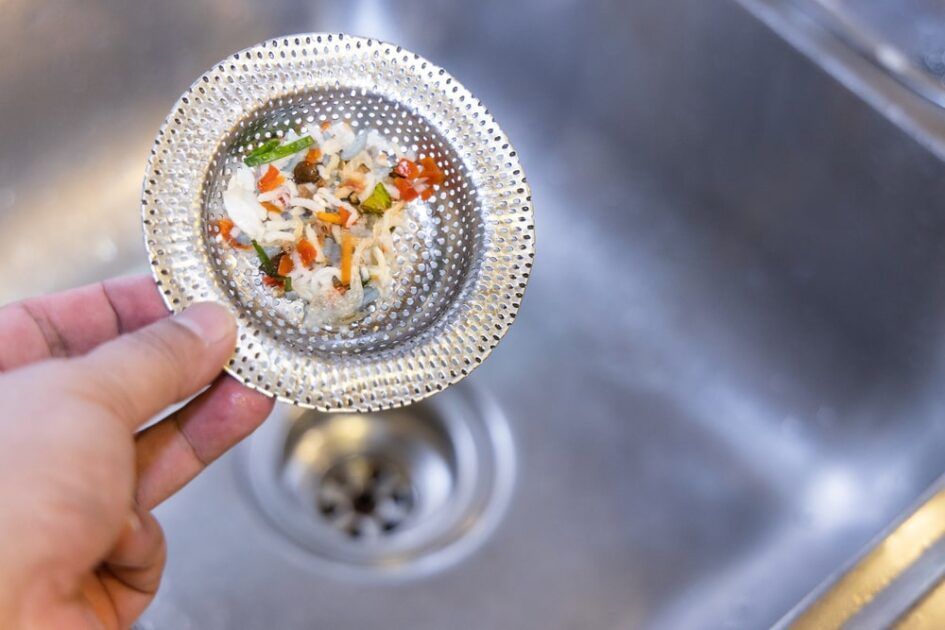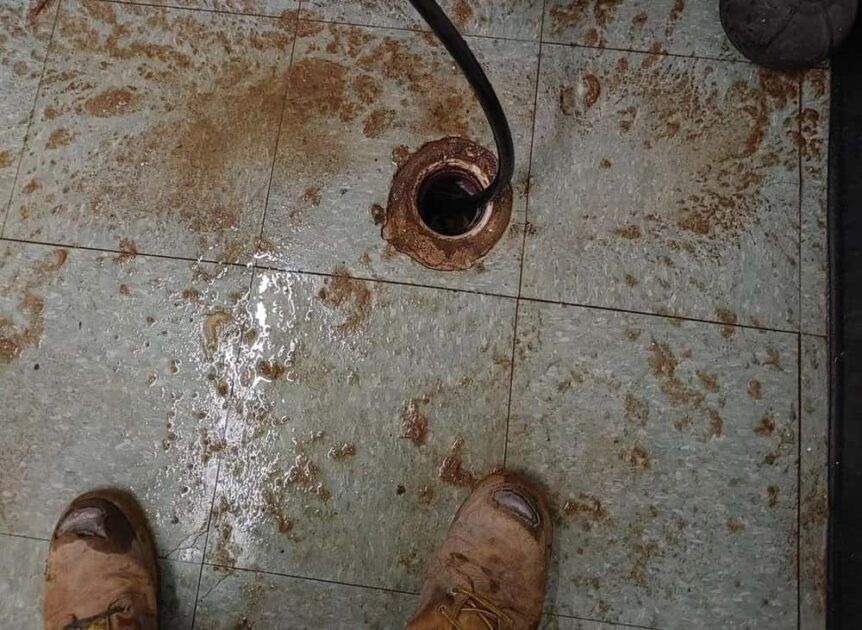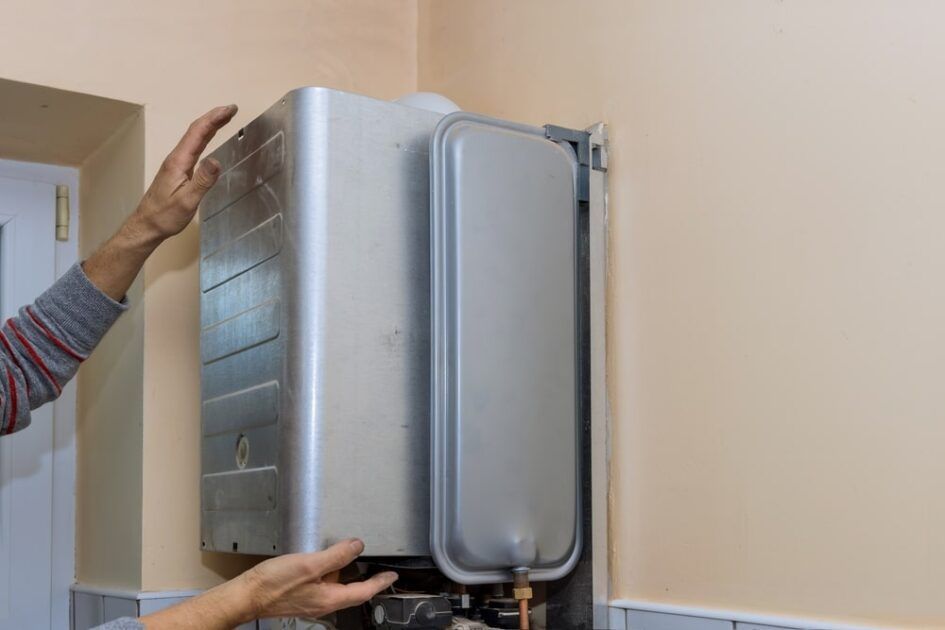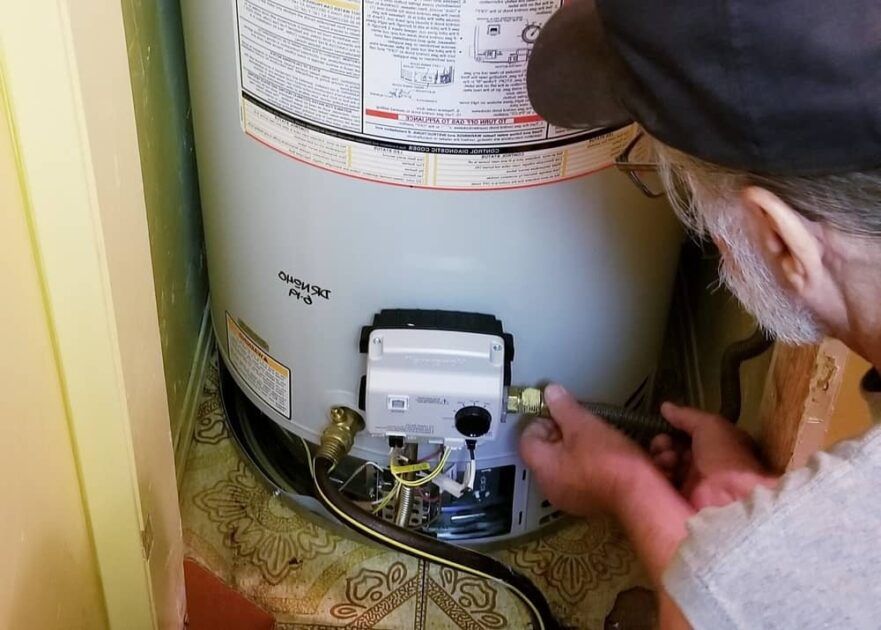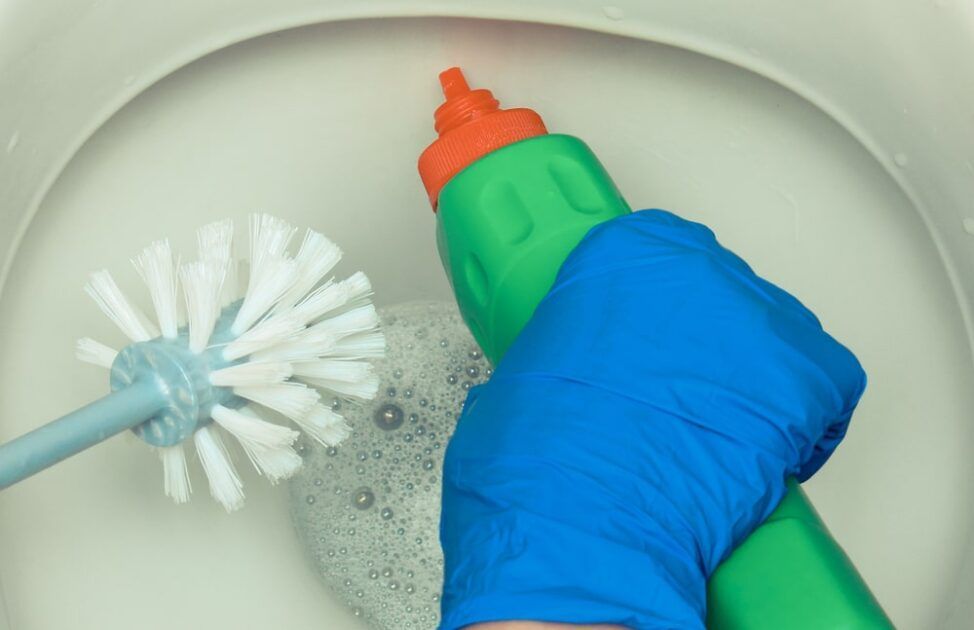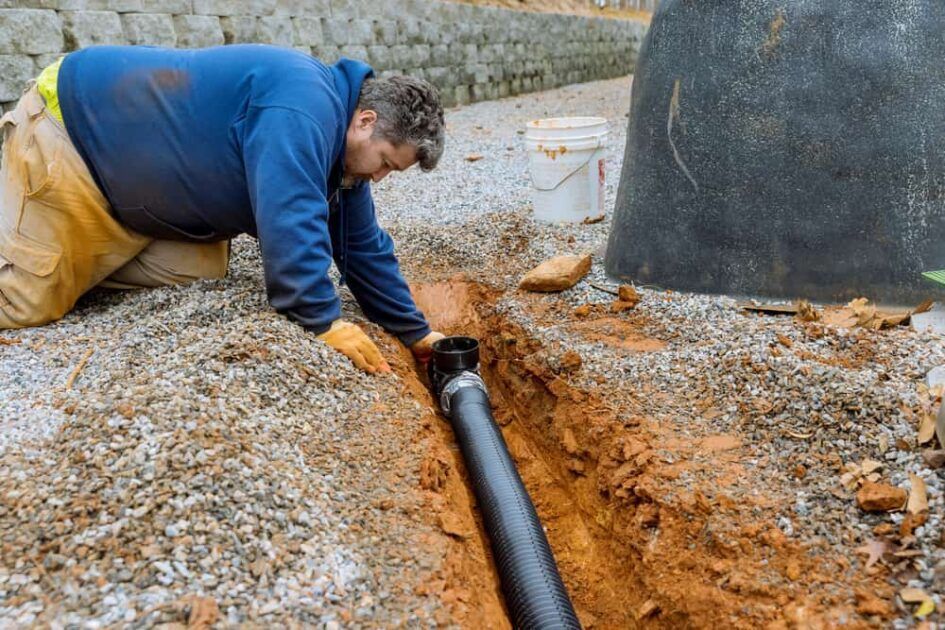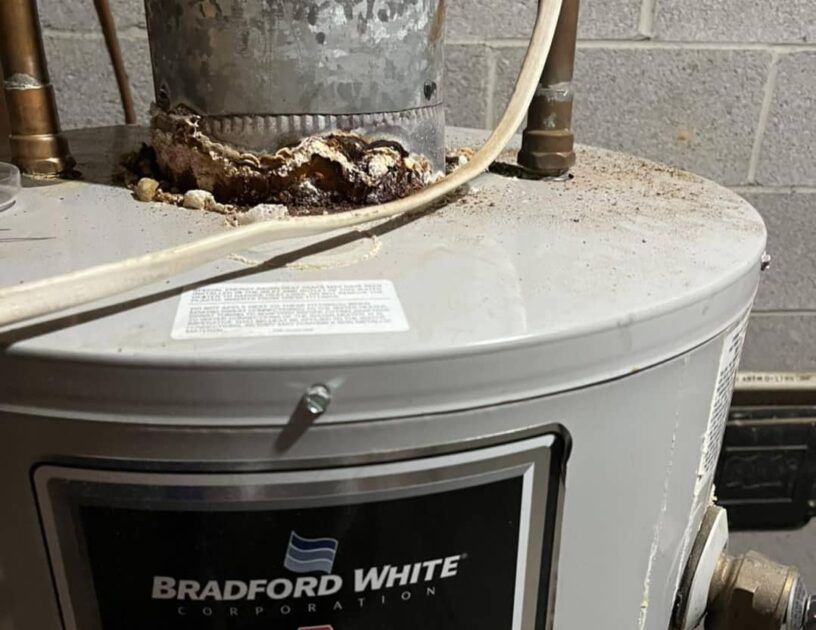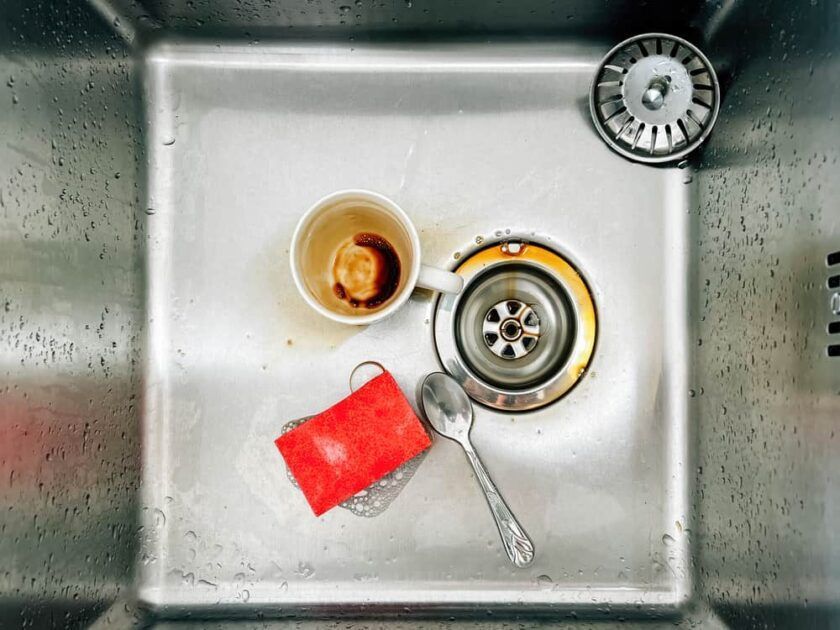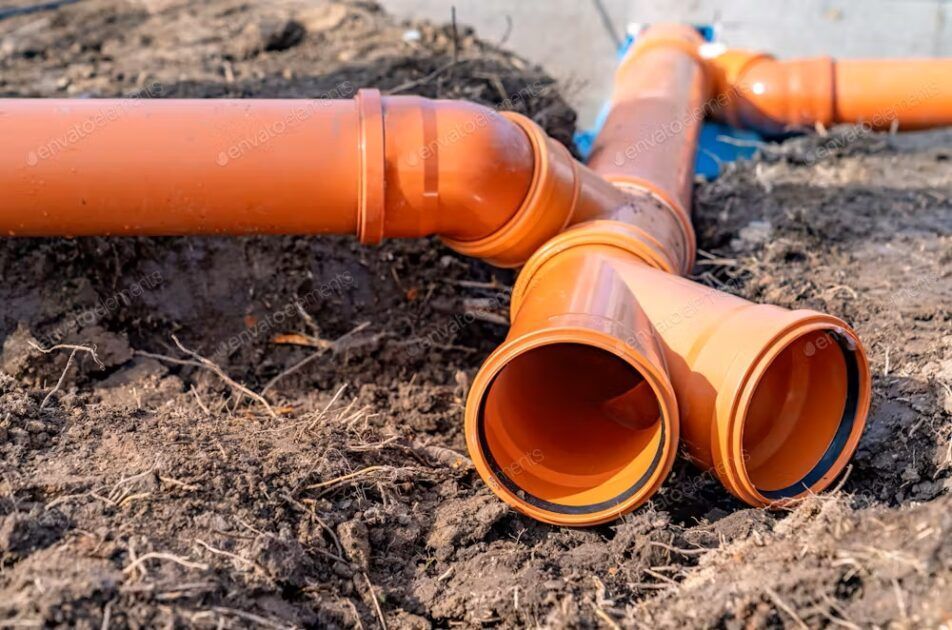The Dangers of Having Rust in Your Hot Water Heater: Act Before It’s Too Late!
Water heaters are essential to our homes. We depend on them for daily tasks ranging from bathing to cleaning dishes. However, so often, we overlook how well they are operating until something goes amiss. Right? Rust can pose serious threats to your water heater’s longevity. Here, we will explore the dangers associated with rusting water heaters as well as their possible remedies. If you’re in Edwardsville or the surrounding southern Illinois area and need assistance with your water heater, be sure to check out our 24-hour water heater services.
Understanding Water Heater Rust
Rust in a water heater is the corrosion of its tank or components due to interactions among water, metal as well as oxygen. High temperatures further expedite this process; therefore, water heaters are more susceptible to developing rust deposits. Its formation could appear anywhere on a water heater, including its top, bottom, and even interior surfaces. Alongside rust, sediment buildup in the water heater is another concern, often signaled by reduced efficiency and clogging.
Let us look at rust in hot water heater it in detail:
The Rust on Top of the Water Heater
Rust on top of your water heater can be indicative of a few different issues. It often results from condensation or leaks that cause water to pool on the top surface. Here are some dangers associated with rust on top of the water heater:
- Leakage Risk: Rust can weaken metal surfaces and make them more prone to leaks. Water damage could occur within your home if this persists and spreads further.
- Rust Can Reduce Efficiency: Rust on top of a heater may interfere with insulation, decreasing efficiency and potentially raising utility costs.
Rust on the Bottom of the Water Heater
Rust on the bottom of the water heater can be a more serious issue. It often occurs when water accumulates at the bottom of the tank. Here are some dangers associated with rust on the bottom of the water heater:
- Tank Erosion: Rust can erode tanks from their foundation upwards, jeopardizing structural integrity and leading to water leakage and waste disposal problems.
- Inefficiency: Rust can accumulate at the bottom, building up to form an opaque layer that interferes with heating processes and significantly decreases your water heater’s effectiveness.
Water Heater Has Rust on the Outside
While rust on the exterior of a water heater may seem less concerning, it can still pose dangers. It typically indicates that the tank is deteriorating from the inside. Here are issues it can cause:
- Structural Weakness: Rust on the outside can weaken the tank, making it more susceptible to leaks or even catastrophic failure.
- Aesthetics: Besides structural concerns, rust on the outside can also make your water heater look unsightly, which might be a concern if your heater is in a visible location.
The Dangers of Water Heater Rust
Knowledge of the hazards posed by water heater rust is integral in taking prompt measures against it, including:
- Health Risks: Rust in your water heater can contaminate its hot water supply and expose you to its particles. This leads to contamination of drinking water sources that, in time, could pose health issues.
- Reduced Lifespan: The structural integrity of your water heater is compromised when rust is present. This can significantly reduce its lifespan, leading to costly replacements.
- Inefficiency: Rust can interfere with your water heater’s heating process and make it less energy-efficient, thus increasing energy bills.
- Leakage: Rust weakening of tank material increases leak risk – potentially costly water damage repairs for any damage inflicted upon homes from leakage infiltration.
- Environmental Effect: Energy-inefficient water heaters consume more power, increasing greenhouse gas emissions and having a negative effect on the environment.
Preventing Water Heater Rust
Maintaining the longevity and safety of your hot water supply depends upon preventing water heater rust from forming, so here are a few steps you can take to do just that:
- Regular Maintenance: Schedule annual maintenance checks for your water heater. Choose wisely between a professional plumber and an electrician to inspect the unit for signs of rust and address any issues early.
- Anode Rod Replacement: Anode rods are sacrificial components that attract corrosion, protecting the tank. Replace them as recommended by the manufacturer.
- Draining the Tank: Periodically draining the tank to remove sediment can help prevent rust formation.
- Installing a Water Softener: If your water is hard and contains a high mineral content, consider installing a water softener. Softer water is less corrosive to the tank.
- Proper Ventilation: Ensure proper ventilation around the water heater to minimize condensation, which can lead to rust formation.
Addressing Rust in Water Heater
If you’ve already discovered rust in your water heater, it’s essential to address the issue promptly.
Here are steps to take if you find rust in your water heater:
- Consult an Expert: Reaching out to an expert is crucial. Contact a licensed water heater technician ; they’ll assess the extent of rust buildup before providing effective solutions.
- Repair or Replace: Depending on the severity of rust damage to your water heater, repairs or replacement could be necessary. In many instances, extensive corrosion builds up, and replacement is the safest course of action.
- Draining and Flushing: In some cases, your technician may suggest draining and flushing the tank to remove rust and sediment. This can be a temporary solution if the rust is not too extensive.
- Corrosion-Resistant Tanks: Consider upgrading to a corrosion-resistant model when considering tank replacement options.
A Rust-Free Future Awaits
Don’t take rust in water heaters lightly; if left unattended, it can present serious risks – from health concerns and reduced efficiency to costly repairs. By understanding its causes and taking preventive steps against it, you can extend its life and ensure an uninterrupted supply of hot water for use within your home.
The water heater’s regular maintenance as well as dealing with any rust issues promptly, is key to keep it in excellent condition. Always choose proactive rather than reactive strategies to keep your appliance in top-notch condition. Rooter-Man Plumbers of Southern Illinois provides A to Z plumbing services, including water heater maintenance. We offer anode rod replacement to prevent water heater rust and extend its lifespan. With their expertise, you can enjoy hot water without worrying about corrosion.
The post The Dangers of Having Rust in Your Hot Water Heater: Act Before It’s Too Late! appeared first on Rooter-Man Plumbers.
